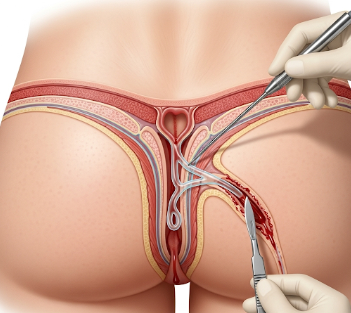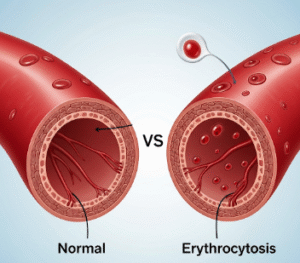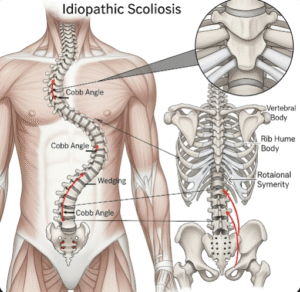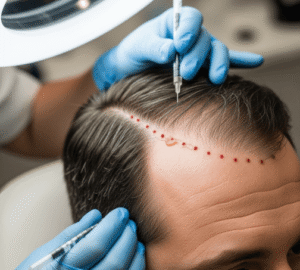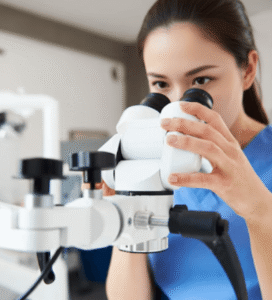Overview
Surgery for anal fistula is a medical procedure to treat an abnormal tunnel between the anal canal and the skin around the anus, which can cause pain, infection, and discharge. Left untreated, anal fistulas can lead to chronic infection, abscess formation, and significant discomfort.
In Korea, this surgery is performed in specialized colorectal and proctology centers, using advanced surgical techniques, including minimally invasive and sphincter-preserving methods, to ensure optimal outcomes, minimal complications, and faster recovery.
What is Surgery for Anal Fistula?
Anal fistula surgery involves removing or draining the fistulous tract while preserving anal sphincter function.
Common surgical techniques include:
- ✦ Fistulotomy: the tract is opened, cleaned, and allowed to heal naturally.
- ➤ Seton placement: a thread or drain is placed to gradually cut through the fistula while maintaining sphincter function.
- ✦ Advancement flap repair: healthy tissue is used to close the internal fistula opening.
- ➤ LIFT procedure (ligation of intersphincteric fistula tract): a minimally invasive method to preserve sphincter muscles.
The goal is to eliminate infection, close the fistula, and prevent recurrence while minimizing incontinence risk.
What are the Benefits?
Surgery for anal fistula provides several advantages:
✅ Eliminates chronic infection and discomfort.
➤ Reduces recurrence risk with proper surgical technique.
✦ Preserves sphincter function – maintaining continence.
➤ Minimally invasive options available – faster recovery and reduced pain.
✅ Improves quality of life – reduces pain, discharge, and social discomfort.
✦ Safe and effective when performed in specialized centers.
Procedure Details
1) How should I prepare for Surgery for Anal Fistula?
Preparation steps include:
- ✦ Medical evaluation: review of medical history, medications, and previous anorectal issues.
- ➤ Diagnostic imaging: MRI or ultrasound to map the fistula and detect complex tracts.
- ✦ Bowel preparation: laxatives, enemas, or dietary adjustments as instructed.
- ➤ Medication adjustments: stopping blood thinners or other medications affecting healing.
- ✦ Consent and counseling: discussion of procedure type, risks, benefits, and potential outcomes.
- ➤ Hygiene: thorough cleaning of the anal area before surgery.
2) What happens during the procedure Surgery for Anal Fistula?
The procedure is performed under local, regional, or general anesthesia, depending on complexity:
➤ Step 1: Patient is positioned in lithotomy or prone position for optimal surgical access.
✦ Step 2: The fistula tract is carefully identified and probed.
➤ Step 3: Depending on the chosen technique:
- Fistulotomy: tract is opened and cleaned.
- Seton placement: a thread is inserted to gradually treat the fistula.
- Flap or LIFT procedure: specialized techniques used to close the tract and preserve sphincter function.
✦ Step 4: Surgical site is cleaned and dressed.
➤ Step 5: Patient is monitored during anesthesia recovery and transported to post-operative care.
Minimally invasive techniques are preferred in Korea to reduce pain, preserve continence, and shorten recovery.
3) What happens after Surgery for Anal Fistula?
Postoperative care includes:
- ✦ Monitoring: vital signs, pain management, and wound care instructions.
- ➤ Pain relief: oral analgesics or local medications as prescribed.
- ✦ Wound care: sitz baths, dressing changes, and hygiene maintenance.
- ➤ Diet and bowel management: high-fiber diet, stool softeners, and hydration to prevent constipation.
- ✦ Follow-up: regular check-ups to monitor healing and detect recurrence.
- ➤ Activity guidance: avoid heavy lifting or strenuous activities until cleared by the surgeon.
Healing may take 4–8 weeks, depending on fistula complexity and surgical method.
Risks / Benefits
Potential Risks:
- ✦ Infection or delayed wound healing.
- ➤ Recurrence of fistula if not completely treated.
- ✦ Bleeding or discomfort at the surgical site.
- ➤ Rare risk of incontinence if sphincter muscles are damaged.
- ✦ Pain or swelling in the anal area.
Benefits:
- ✅ Resolves chronic infection and discharge.
- ✅ Reduces recurrence risk with proper surgical planning.
- ✅ Preserves sphincter function with advanced techniques.
- ✅ Improves quality of life and daily comfort.
- ✅ Minimally invasive options available for faster recovery.
Recovery and Outlook
Recovery after anal fistula surgery generally includes:
- ➤ Hospital stay: may be outpatient or 1–2 days depending on complexity.
- ✦ Pain management: mild to moderate discomfort managed with prescribed analgesics.
- ➤ Wound care: sitz baths and proper hygiene facilitate healing.
- ✦ Return to normal activities: light activities within a few days; full activity after 4–6 weeks.
- ➤ Long-term outcome: majority of patients achieve fistula closure and restoration of normal function, with low recurrence rates when surgery is performed in experienced centers.
When To Call the Doctor
Contact your healthcare provider if you notice:
⚠ Severe pain or swelling not relieved by medication.
⚠ Excessive bleeding or discharge from the surgical site.
⚠ Signs of infection: fever, redness, or foul odor.
⚠ Difficulty controlling bowel movements beyond expected recovery period.
⚠ Recurrence of fistula symptoms such as drainage or pain.
Best Korea Option / Process
Korea provides world-class anal fistula surgery with:
- ✦ Expert colorectal surgeons skilled in both conventional and minimally invasive techniques.
- ➤ Advanced diagnostic imaging (MRI, endoscopic ultrasound) for precise fistula mapping.
- ✦ State-of-the-art surgical equipment for sphincter-preserving procedures.
- ➤ Comprehensive pre- and post-operative care including wound management, dietary counseling, and follow-up.
- ✦ Minimally invasive and day-surgery options for suitable patients.
- ➤ Multidisciplinary support including nursing, physiotherapy, and nutrition for optimal recovery.
Korea ensures that patients receive safe, precise, and effective treatment for anal fistulas with minimal complications and rapid recovery.
Highlights of Surgery for Anal Fistula in Korea
- ✅ Expert surgical teams using advanced techniques.
- ➤ Minimally invasive options for faster recovery.
- ✦ High success rate with low recurrence.
- ➤ Sphincter-preserving procedures to maintain continence.
- ✅ Comprehensive pre- and post-operative care for optimal outcomes.

